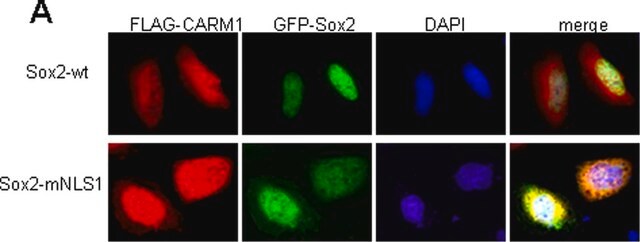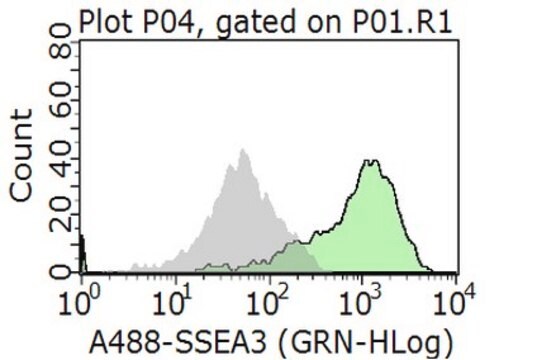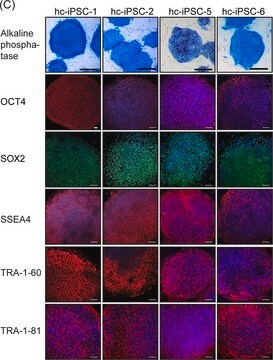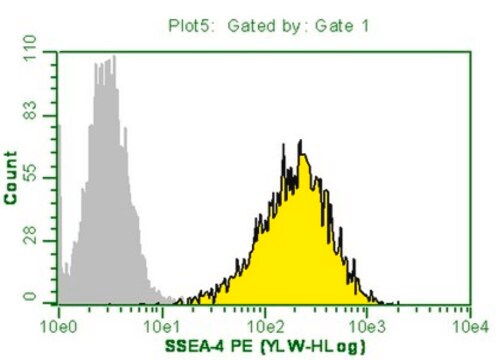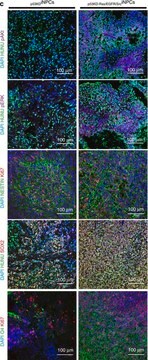MAB4304
Anti-Stage-Specific Embryonic Antigen-4 Antibody, clone MC-813-70
clone MC-813-70, Chemicon®, from mouse
Synonym(s):
SSEA-4
About This Item
Recommended Products
biological source
mouse
Quality Level
antibody form
purified immunoglobulin
antibody product type
primary antibodies
clone
MC-813-70, monoclonal
species reactivity
human, mouse
manufacturer/tradename
Chemicon®
technique(s)
ELISA: suitable
flow cytometry: suitable
immunofluorescence: suitable
immunohistochemistry: suitable
input
sample type: mouse embryonic stem cell(s)
sample type: human embryonic stem cell(s)
sample type induced pluripotent stem cell(s)
isotype
IgG3
shipped in
wet ice
target post-translational modification
unmodified
General description
Specificity
Immunogen
Application
Immunofluorescence: A previous lot of this antibody was used in IF.
ELISA: A previous lot of this antibody was used in ELISA.
Flow Cytometry: A starting range of 10-20 µg/mL is suggested.
Optimal working dilutions must be determined by the end user.
Stem Cell Research
Pluripotent & Early Differentiation
Physical form
Storage and Stability
Analysis Note
Pluripotent human embryonic stem (ES) cells
Other Notes
Legal Information
Disclaimer
Not finding the right product?
Try our Product Selector Tool.
Storage Class Code
10 - Combustible liquids
WGK
WGK 2
Certificates of Analysis (COA)
Search for Certificates of Analysis (COA) by entering the products Lot/Batch Number. Lot and Batch Numbers can be found on a product’s label following the words ‘Lot’ or ‘Batch’.
Already Own This Product?
Find documentation for the products that you have recently purchased in the Document Library.
Our team of scientists has experience in all areas of research including Life Science, Material Science, Chemical Synthesis, Chromatography, Analytical and many others.
Contact Technical Service
